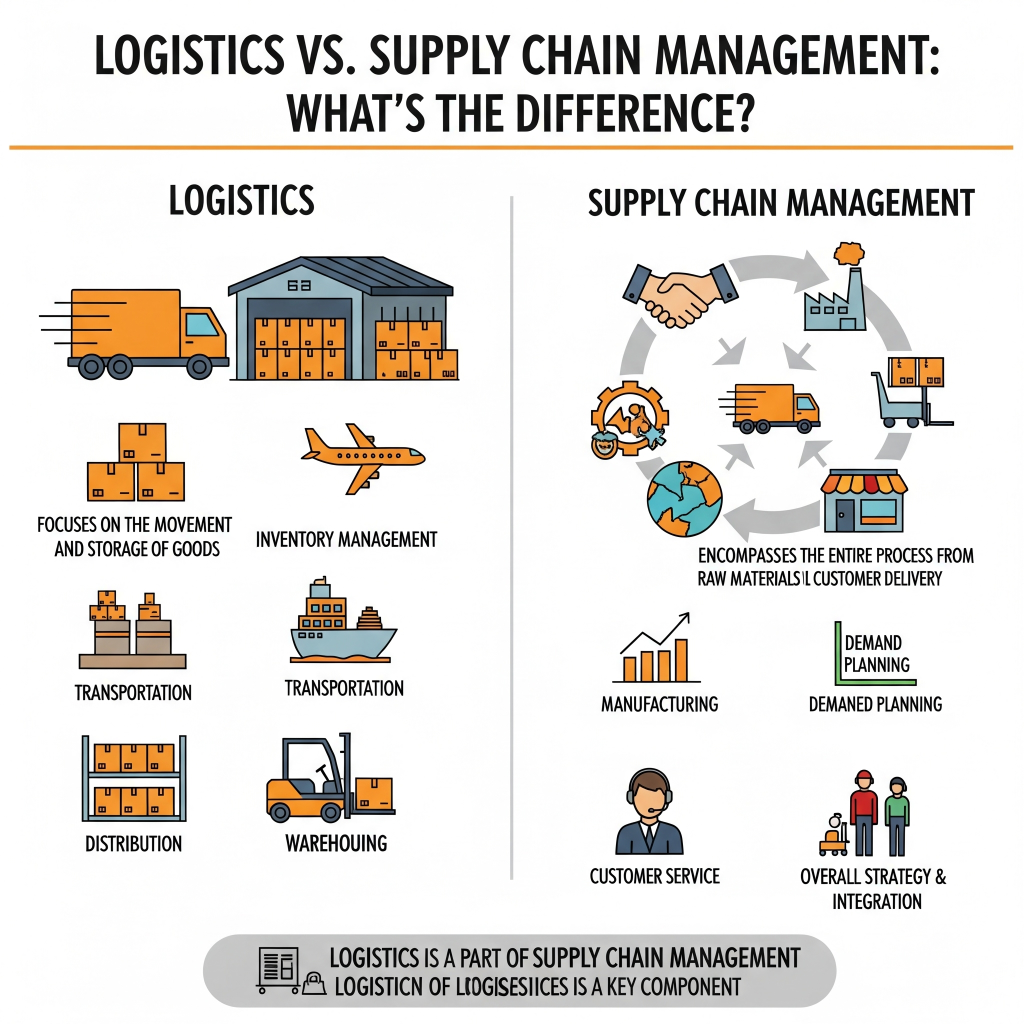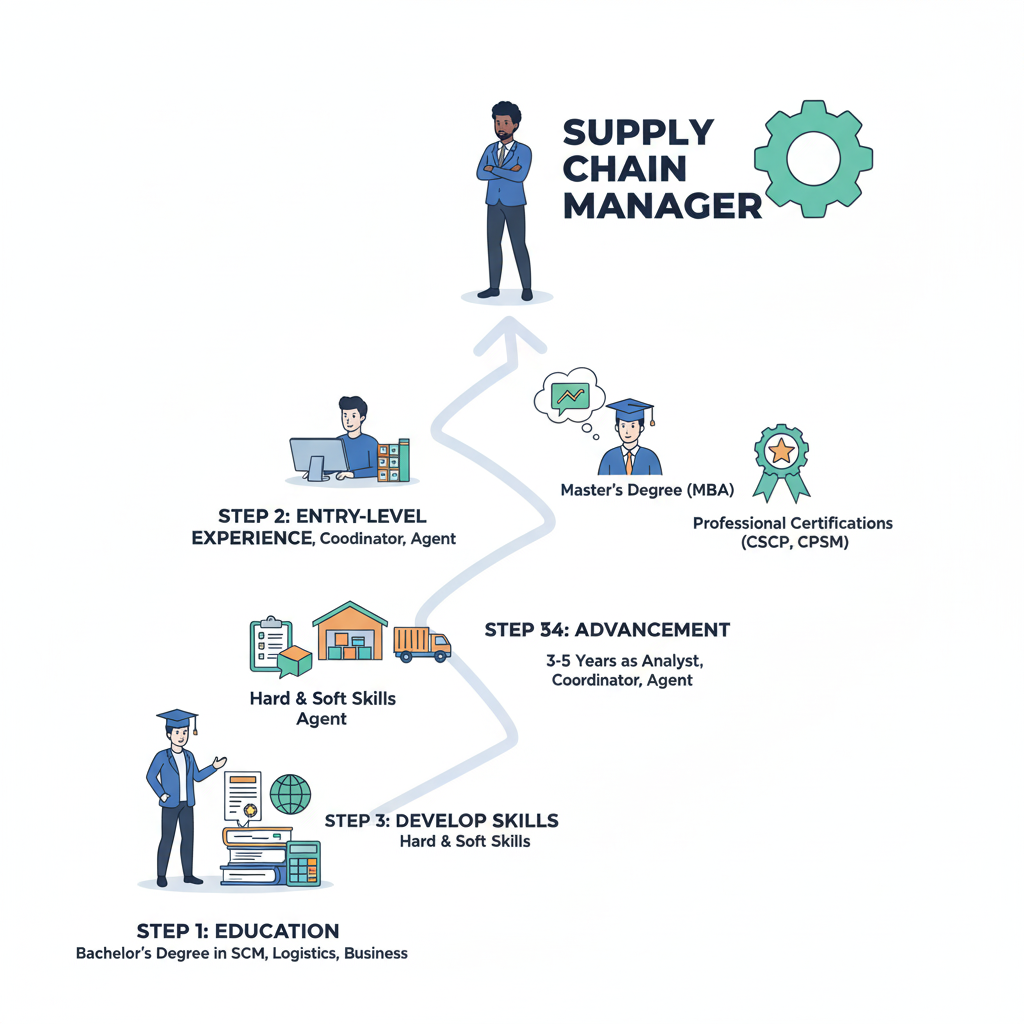
Table of Content
- What is supply chain management course
- What is global supply chain management
- Is supply chain management in demand
- Why is supply chain management important
- How supply chain management works
- What is the difference between logistics and supply chain management
- is supply chain management a good career
- in which industry we apply for after supply chain management Course
- jobs after supply chain management Course
- how to become a supply chain manager
- what does a supply chain manager do
- what is the supply chain manager sallery
- supply chain manager roles & responsiblity
- MITSDE best Institution for Supply chain management courses
Introduction
In today’s fast-paced global economy, companies rely heavily on smooth operations, efficient logistics, and strong supply chains. This is why professionals trained in supply chain management courses are in high demand. Whether you’re a fresh graduate or a working professional aiming to upskill, understanding the field of supply chain management can unlock diverse and rewarding career opportunities.
In this guide, we’ll explore everything you need to know about supply chain management courses, career prospects, and why choosing the right institution like MITSDE can make all the difference.
What is a Supply Chain Management Course?
A supply chain management course is a professional program designed to equip students with knowledge about how goods and services flow from suppliers to customers. It covers areas like:
- Procurement and sourcing
- Inventory and warehouse management
- Logistics and transportation
- Distribution channels
- Demand forecasting and planning
The course ensures students understand the end-to-end process, from raw materials to final product delivery, preparing them for managerial roles in logistics and supply chain operations.
What is Global Supply Chain Management?
Global supply chain management deals with coordinating goods and services across international borders. With businesses sourcing raw materials globally and selling products worldwide,
professionals must manage:
- International trade laws
- Global logistics and shipping
- Risk management in uncertain markets
- Cross-border supply and demand fluctuations
This specialization is especially relevant today, as global disruptions like pandemics or geopolitical tensions highlight the importance of skilled supply chain managers.

Is Supply Chain Management in Demand?
Yes! Supply chain management is one of the most in-demand fields worldwide. According to industry reports, demand for supply chain professionals is growing at nearly 30% annually. Businesses across industries need experts who can ensure uninterrupted operations, cost efficiency, and faster delivery to customers.
Working professionals enrolling in supply chain management online courses or executive programs find excellent career growth opportunities due to this rising demand.
Why is Supply Chain Management Important?
Supply chain management is critical for business success. Here’s why:
- Cost Efficiency: Reduces waste and unnecessary expenses.
- Customer Satisfaction: Ensures timely delivery of products.
- Resilience: Helps companies handle global disruptions.
- Sustainability: Encourages eco-friendly and ethical operations.
In short, supply chain management is the backbone of industries like e-commerce, FMCG, healthcare, manufacturing, and retail.
How Supply Chain Management Works
Supply chain management works through interconnected stages:
- Planning – Forecasting demand and strategizing production.
- Sourcing – Selecting suppliers and raw materials.
- Manufacturing – Transforming raw inputs into finished goods.
- Logistics – Storage, inventory, and transportation.
- Delivery – Distributing products to consumers.
- Returns – Handling customer returns and reverse logistics.
Professionals learn these processes in logistics and supply chain management courses, preparing them to manage operations efficiently.
How Does Taking a Supply Chain Management Course Help You?
Enrolling in a supply chain management course provides both practical knowledge and career advantages. Here’s how it helps you:
- Industry-Relevant Skills: Learn procurement, logistics, inventory, and operations management.
- Career Growth: Opens doors to managerial roles in logistics, operations, and global supply chains.
- Better Job Opportunities: Industries like e-commerce, manufacturing, healthcare, and retail actively hire supply chain professionals.
- Higher Salary Packages: Specialized certification in Supply Chain Management increases earning potential.
- Global Exposure: Courses often cover global supply chain management, preparing you for international roles.
- Flexibility for Professionals: Many institutions, like MITSDE, offer supply chain management online courses so you can learn while working.
- Problem-Solving Skills: Teaches how to handle disruptions, reduce costs, and improve customer satisfaction.
A structured course gives you the confidence, credentials, and competitive edge to succeed in today’s dynamic business environment.

Is Supply Chain Management a Good Career?
Absolutely! Supply chain management offers:
- High Salaries for skilled professionals
- Global Opportunities across industries
- Diverse Roles in logistics, operations, and analytics
- Career Stability due to high demand
An MBA in supply chain management course or a PGDM supply chain management course can fast-track your career into leadership roles.
In Which Industry Can You Apply After Supply Chain Management Course?
After completing supply chain management courses for working professionals or fresh graduates, you can apply in:
- E-commerce & Retail (Amazon, Flipkart, Walmart)
- Manufacturing (Automotive, Electronics, Consumer Goods)
- Healthcare & Pharmaceuticals
- Logistics & Shipping Companies
- FMCG & Food Industry
- Consulting Firms specializing in operations
This wide industry application makes it one of the most versatile career paths.
Jobs After Supply Chain Management Course
Some common job roles include:
- Supply Chain Analyst
- Logistics Manage
- Procurement Specialist
- Warehouse Operations Manager
- Transportation Manager
- Inventory Controller
- Supply Chain Consultant
With experience, you can grow into senior roles like Supply Chain Director or Chief Operations Officer (COO).
How to Become a Supply Chain Manager?
To become a supply chain manager, follow these steps:
- Education – Pursue a bachelor’s degree, then specialize with a PGDM in Supply Chain Management or MBA in logistics and supply chain management courses.
- Practical Knowledge – Gain internship or work experience in operations.
- Certifications – Consider certifications like Lean Six Sigma, SAP, or PMP.
- Networking & Upskilling – Join industry forums and pursue continuous learning with supply chain management online courses.

What Does a Supply Chain Manager Do?
A supply chain manager ensures smooth end-to-end operations.
Their responsibilities include:
- Overseeing procurement and vendor relationships
- Managing logistics and distribution channels
- Tracking supply chain KPIs
- Reducing costs and improving efficiency
- Ensuring compliance with regulations
What is the Supply Chain Manager Salary?
The salary of a supply chain manager depends on experience and industry:
- Entry-level: ₹4–6 LPA
- Mid-level: ₹8–15 LPA
- Senior-level: ₹18–30+ LPA
In global roles, professionals can earn six-figure salaries annually. With a PGDM in supply chain management, candidates often start with higher packages.
Supply Chain Manager Roles & Responsibility
Key roles and responsibilities include:
- Designing supply chain strategies
- Ensuring timely delivery of goods
- Managing budgets and reducing risks
- Leading cross-functional teams
- Implementing advanced tools like ERP and AI-driven systems
MITSDE – Best Institution for Supply Chain Management Courses
When it comes to pursuing supply chain management courses in Mumbai or supply chain management courses in Pune, the MIT School of Distance Education (MITSDE) stands out as the best choice.
Why MITSDE?
- AICTE-Approved Online PGDM in Supply Chain Management
- Flexible Online Learning for working professionals
- Industry-Relevant Curriculum covering logistics, operations, procurement, and analytics
- Expert Faculty with industry experience
- Placement Assistance and career support
At MITSDE, you can choose from specialized programs like:
- PGDM in Logistics & Supply Chain Management
- Executive PGDM in Global Logistics and Supply Chain Management
- Certification in Logistics and Supply Chain Management
- MBA Supply Chain Management Courses (distance learning)
Conclusion
Supply chain management is more than just moving goods—it’s about creating efficiency, reducing costs, and ensuring customer satisfaction. With industries increasingly depending on global supply networks, pursuing logistics and supply chain management courses can open doors to high-paying, future-ready careers.
If you’re a working professional or a graduate looking to upskill, choosing a PGDM in Supply Chain Management from MITSDE can give you the competitive edge you need.



